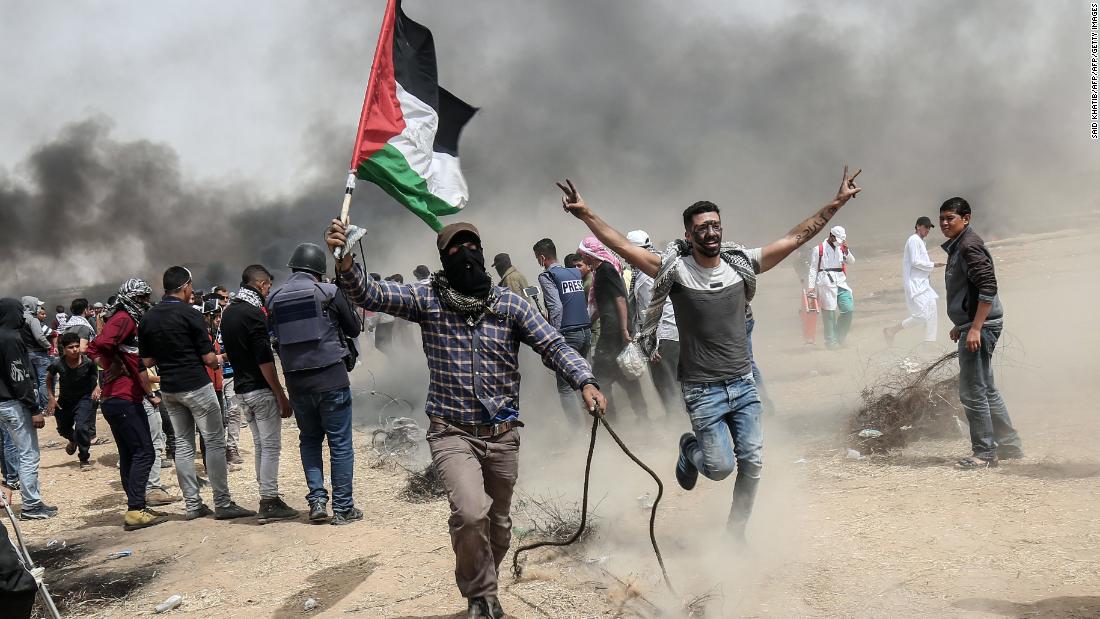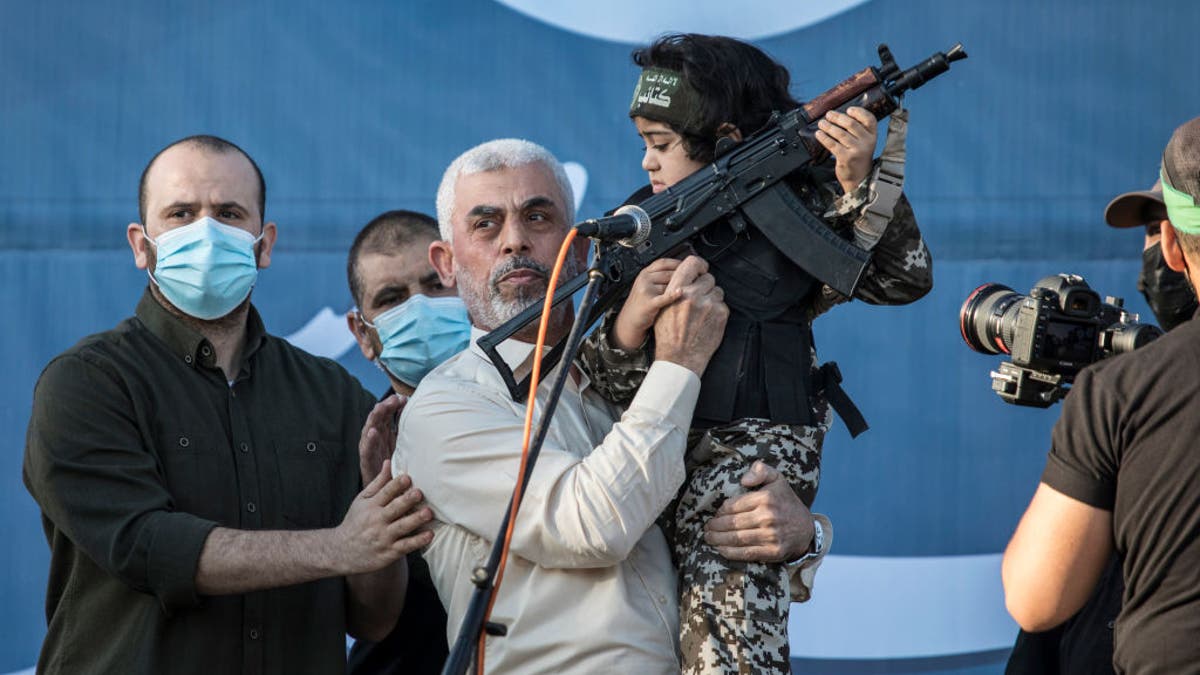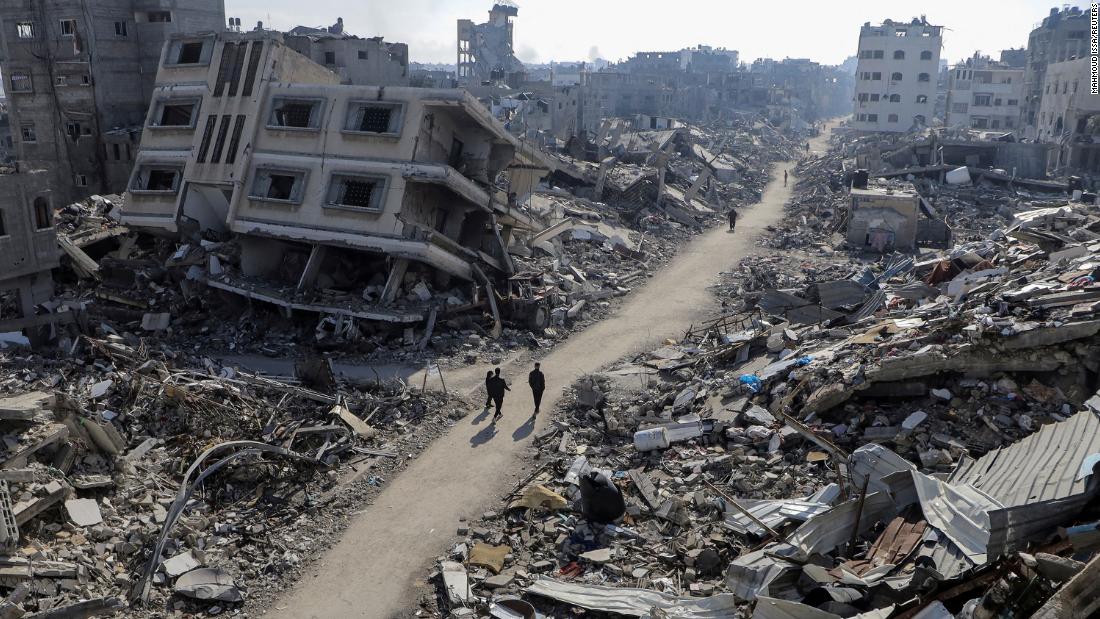Let's talk about something that's been on everyone's mind lately: the call for peace in the Middle East. Hamas, one of the major players in the region, has officially stated their position—calling for an immediate end to the war. But what does this mean? And why is it such a big deal right now? If you're curious about the latest developments and want to understand the complexities of this situation, you're in the right place.
You might be wondering, why should we care about what Hamas has to say? Well, here's the thing: Hamas isn't just another group in the mix. They're a significant political and military force in Palestine, and their stance can have far-reaching consequences. Their call for an immediate end to the war is not just a statement—it's a potential game-changer in the ongoing conflict.
Now, before we dive deep into the nitty-gritty details, let's set the stage. This article will break down the reasons behind Hamas's decision, the history leading up to this moment, and what it could mean for the future. Whether you're a history buff, a politics enthusiast, or someone who just wants to stay informed, this piece has got you covered. So grab a cup of coffee, sit back, and let's explore the world of geopolitics together.
Read also:Millie Bobby Brown And Drake The Connection You Didnrsquot Know About
Understanding the Context of Hamas Calls for Immediate End to War
Why Is Hamas Calling for Peace Now?
Here's the lowdown: Hamas's decision to call for an immediate end to the war didn't come out of nowhere. There are several factors at play here, from internal pressures to external influences. For starters, the humanitarian crisis in Gaza has been escalating, with civilians bearing the brunt of the conflict. Resources are scarce, and the situation on the ground is dire.
On top of that, international pressure has been mounting. World leaders, NGOs, and even everyday people are speaking out against the violence. Social media campaigns, protests, and diplomatic efforts have all contributed to a growing call for peace. It's not just about politics anymore—it's about humanity.
And let's not forget the strategic angle. By calling for peace, Hamas may be trying to reposition itself on the global stage. They want to be seen as a group that's willing to negotiate and find solutions, rather than just another player in the cycle of violence. It's a bold move, but one that could pay off if executed correctly.
The History Behind Hamas and the Conflict
A Brief Overview of Hamas's Role in the Region
To truly understand the significance of Hamas's call for peace, we need to take a step back and look at their history. Founded in 1987 during the First Intifada, Hamas quickly established itself as a powerful force in Palestinian politics. They've been involved in everything from social services to armed resistance, making them a complex and controversial organization.
Over the years, Hamas has faced numerous challenges, from Israeli blockades to internal divisions within Palestine. Despite these obstacles, they've managed to maintain a strong presence in Gaza. Their military wing, the Izz ad-Din al-Qassam Brigades, has been responsible for many operations against Israel, further complicating the peace process.
But here's the kicker: Hamas isn't just about military might. They've also been involved in governance, running schools, hospitals, and other essential services in Gaza. This dual role as both a resistance movement and a governing body makes them a unique player in the region's politics.
Read also:Hailee And Kendra Nude A Candid Look At Misinformation Privacy And Digital Awareness
What Does an Immediate End to War Mean?
Defining the Terms of Peace
When Hamas says they want an "immediate end to the war," what exactly do they mean? Well, it's not as straightforward as it sounds. For starters, there are different interpretations of what "peace" looks like. Does it mean a complete ceasefire? A withdrawal of Israeli forces from occupied territories? Or something else entirely?
One thing is for sure: any peace agreement would need to address the root causes of the conflict. This includes issues like land disputes, access to resources, and the rights of Palestinian refugees. Without tackling these underlying problems, any ceasefire would likely be short-lived.
Additionally, there's the question of trust. After decades of conflict, building trust between the parties involved won't be easy. Both sides will need to make concessions and show a genuine willingness to work together. It's a tall order, but one that's necessary for lasting peace.
International Reactions to Hamas's Call
How the World Is Responding
So, what are people saying about Hamas's call for peace? The reactions have been mixed, to say the least. Some world leaders have praised the move, seeing it as a positive step toward resolving the conflict. Others, however, remain skeptical, pointing to Hamas's past actions and questioning their sincerity.
The United Nations, for example, has welcomed the call, urging all parties to engage in meaningful dialogue. Meanwhile, the European Union has expressed cautious optimism, emphasizing the need for concrete actions to back up words.
On the other hand, Israel has been more critical, arguing that Hamas's intentions are unclear. They've also pointed out that past ceasefires have often been followed by renewed violence, making them hesitant to jump on board too quickly.
The Humanitarian Impact of the Conflict
Why Peace Is Essential for Civilians
Let's not lose sight of the real victims here: the civilians caught in the crossfire. The conflict has taken a devastating toll on both Palestinian and Israeli communities, with thousands of lives lost and countless more affected by the violence.
In Gaza, the situation is particularly dire. Basic necessities like food, water, and medical supplies are in short supply, and the infrastructure is in ruins. Children are growing up in a state of constant fear, and the psychological impact is immeasurable.
Ending the war isn't just about politics—it's about saving lives. By calling for peace, Hamas is acknowledging the suffering of their own people and signaling a willingness to prioritize their well-being over continued conflict.
Potential Challenges in Achieving Peace
What Could Go Wrong?
Of course, achieving peace is easier said than done. There are plenty of obstacles standing in the way, from hardline factions on both sides to external actors with their own agendas. Here are just a few of the challenges that could derail the peace process:
- Hardline groups that oppose any form of compromise
- Disagreements over the terms of a ceasefire or peace agreement
- External interference from countries with vested interests in the region
- Historical grievances and mistrust between the parties involved
Overcoming these challenges will require a lot of patience, negotiation, and goodwill from all sides. It won't be easy, but it's not impossible either.
Opportunities for Progress
Reasons to Be Hopeful
Despite the challenges, there are reasons to be optimistic about the future. For one, the global push for peace is stronger than ever. More and more people are recognizing the need for a resolution to the conflict, and they're putting pressure on their governments to take action.
Moreover, there are signs that both Hamas and Israel are open to dialogue. While it may take some time to build trust and reach an agreement, the fact that they're willing to talk is a positive step forward.
And let's not forget the younger generation. Many young Palestinians and Israelis are tired of the cycle of violence and are looking for ways to coexist peacefully. Their voices could play a crucial role in shaping the future of the region.
The Role of International Organizations
Can the UN and Others Help?
International organizations like the United Nations have a vital role to play in facilitating peace talks. They can provide a neutral platform for dialogue, offer expertise in conflict resolution, and help monitor any agreements that are reached.
But it's not just about the big players. Smaller organizations and NGOs can also contribute by providing humanitarian aid, promoting education and awareness, and fostering grassroots initiatives for peace.
The key is collaboration. By working together, these organizations can create a supportive environment for peace talks and help ensure that any agreements are implemented successfully.
What Can You Do?
Taking Action for Peace
So, what can you do to support the peace process? There are plenty of ways to get involved, even from afar. Here are a few ideas:
- Stay informed about the latest developments and share credible information with others
- Support organizations working for peace and humanitarian aid in the region
- Engage in respectful conversations about the conflict and its implications
- Advocate for policies that promote peace and justice
Your actions, no matter how small, can make a difference. Together, we can help build a brighter future for everyone involved.
Conclusion
As we've seen, Hamas's call for an immediate end to the war is a significant development in the ongoing conflict in the Middle East. While there are challenges to overcome, there are also opportunities for progress. By understanding the context, staying informed, and taking action, we can all contribute to the pursuit of peace.
So, what's next? It's up to all of us to keep the conversation going and push for meaningful change. Share this article, leave a comment, and let's work together to create a more peaceful world. Because at the end of the day, peace isn't just a dream—it's a possibility worth fighting for.
Table of Contents
- Understanding the Context of Hamas Calls for Immediate End to War
- The History Behind Hamas and the Conflict
- What Does an Immediate End to War Mean?
- International Reactions to Hamas's Call
- The Humanitarian Impact of the Conflict
- Potential Challenges in Achieving Peace
- Opportunities for Progress
- The Role of International Organizations
- What Can You Do?
- Conclusion


